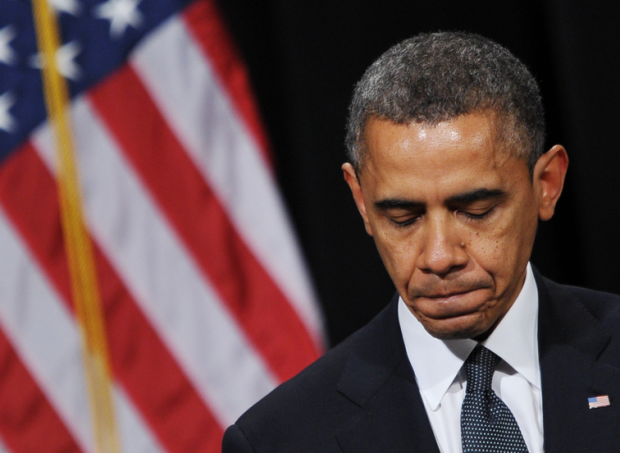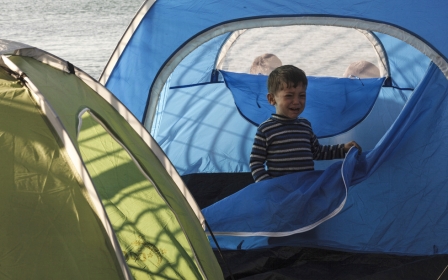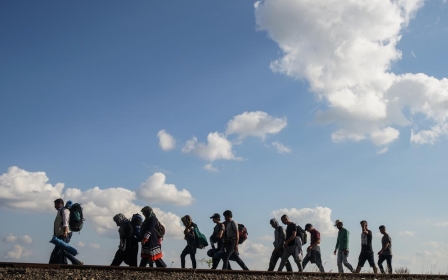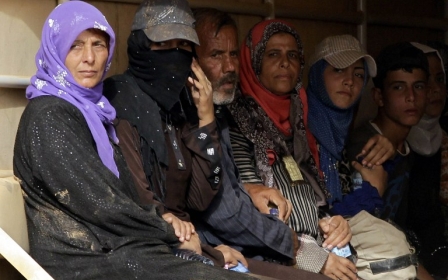US leadership role hurt by weak Syria refugee response

By Dave Clark
WASHINGTON - The US failure to live up to its historic role as the leader in resettling war refugees will weaken its diplomatic clout and tarnish Barack Obama's legacy, aid agencies warned on Tuesday.
With millions of Syrians forced into camps across the Middle East, tens of thousands crossing Europe on foot and hundreds washing up dead on beaches, America has promised to take in only 10,000 as refugees next year.
Alongside this, Washington - the leading humanitarian donor to the region - has launched a diplomatic effort to end the political crisis with Syria and leads a coalition bombing the Islamic State (IS) group.
But the US, which once took in more than 300,000 Vietnamese and still accepts 70,000 refugees from around the world each year, has been slow to accept Syrians, allowing in fewer than 1,800 since 2011.
"This is fast becoming a legacy issue for the Obama administration," said Paul O'Brien, vice president of Oxfam America.
"This 10,000 is basically the number we could do in our sleep."
Public emotion
Aid agencies, speaking to reporters on a conference call, said an outpouring of public emotion after media photographs of three-year-old Aylan Kurdi lying drowned on a Syrian beach, had boosted their fundraising.
But without countries prepared to take in more of the most vulnerable families sheltering under canvas in Turkey, Lebanon, Jordan and Iraq, pressure on frontline humanitarian responders will only grow.
European governments have struggled to agree on a coordinated resettlement programme and have alternated grand promises with sudden border closures, leaving a leadership gap once held by the US.
"Our groups are doing all they can on the ground," said Carolyn Miles, president of Save the Children, urging world leaders to seize upon this month's United Nations General Assembly to revive the quest for a political solution.
The 10,000 figure for the US fiscal year that starts at the end of this month, which the White House offered last week, would represent a steep increase in the trickle of Syrians that have arrived here so far.
But, aid agencies represented on the call - including Oxfam, Save the Children and Mercy Corps - felt the United States could "add a zero" to the number, bring it to 100,000.
Suzanne Akhras, founder of the Syrian Community Network, described how the largely urbanised and educated refugees assimilate easily in US cities like Chicago, where her group helps families settle in.
Many Americans have volunteered to take refugees into their homes, and donations to aid groups have soared.
In the first eight months of the year, Save the Children raised $200,000 for its Syria campaign. In the two weeks since young Aylan's picture was published, the group has raised a million dollars, Miles said.
But, concerned that refugees might bring with them the extremist ties that have fueled the violence in their war-torn homeland, US authorities have imposed stringent security checks and it takes up to two years to process every case.
Defending the US record
Nevertheless, US officials strongly defend their record.
"We want every nation to do what they can, but these are sovereign decisions they have to make," State Department spokesman John Kirby said last week.
"We're proud of our track record on this issue and the fact that we are going to continue to explore options here in the United States to do more."
The aid agencies, however, feel that US leadership - in the form of a much larger resettlement programme - would help galvanise European powers.
"President Obama has to decide what his legacy on this issue is going to be," said O'Brien, echoing his colleagues in calling for "real moral leadership" to back up the diplomatic push for peace.
Middle East Eye propose une couverture et une analyse indépendantes et incomparables du Moyen-Orient, de l’Afrique du Nord et d’autres régions du monde. Pour en savoir plus sur la reprise de ce contenu et les frais qui s’appliquent, veuillez remplir ce formulaire [en anglais]. Pour en savoir plus sur MEE, cliquez ici [en anglais].




